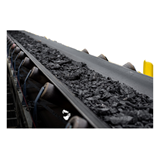Australian Coal Association executive director Mark O'Neill said that this would be achieved through an expansion of the $300 million COAL21 Fund announced just last year.
The scheme’s voluntary coal levy will now be extended beyond the original five year term, and, for example, based on projected industry growth, would result in an estimated $1 billion being raised over the next decade.
The decision has been welcomed by the Queensland Resources Council’s Chief Executive Michael Roche who said that this extension of the voluntary Fund raised the bar for other industries to follow.
O'Neill said the decision to dramatically increase the amount of funding coal producers would commit reflected the industry's growing confidence in the role clean coal technology can play in reducing emissions, and growing community concern over climate change.
It also responds to the increasing emphasis that governments are placing on climate change and the role of clean coal technology. This should leave no doubt about the coal industry’s intention to partner with State and Federal Governments on nationally significant clean coal projects, O’Neill said.
These partnerships also needed to include other beneficiaries from Australia’s secure, reliable and affordable coal-based electricity supply. While the coal industry is prepared to play a leading role, power generators, other industries and the broader community all need to share the costs of technological change, O’Neill said.
O'Neill noted that black coal producers who had committed to supporting the Fund would all pay the same rate, despite the fact that some produced primarily metallurgical coal used in steel making rather than power generation, and a number of others supplied the domestic power market under long term contracts, often with tight margins.
O'Neill said that the expanded fund would support nationally and internationally significant projects. Roche noted that the industry had already begun a joint assessment with the Queensland Government of a major Integrated Gasification Combined Cycle (IGCC) project with near zero emissions in Queensland where more than half of the nation's black coal is produced.
The industry would commit $300 million from the Fund to support such a project and would continue to work with Queensland to identify the optimal configuration, Roche said. O'Neill said that the industry was also keen to support worthwhile projects in NSW, the other big black coal producing state.
He noted that $70 million from the COAL21 Fund had already been committed to clean coal technology projects, including $20 million to support a Post Combustion Capture (PCC) project in NSW and $50 million to support a world-leading Oxyfuel combustion project at CS Energy's Callide power station in Queensland.
However O'Neill also said that the development and deployment of breakthrough technologies was primarily a national and global challenge, rather than a state-by-state one. All of the projects we support must make sense in terms of the overall international and national collaborative RD&D effort that is now occurring, he said.
O'Neill and Roche called for a nationally coordinated approach to clean coal technology that ensured the most efficient allocation of RD&D resources based on a clearly articulated national plan. This would build on the landmark COAL21 National Action Plan launched in 2004 and raise the level of co-operation between the Commonwealth, the States and industry.
We need a plan to complete the search for secure commercially viable storage sites, capable of many decades of storage, and to determine the optimum matching power station locations and infrastructure to provide a sound platform for large-scale investment in near-zero emissions power.
This plan needs to be implemented in parallel with the development of cost-effective CO2 capture technologies, paving the way for major investment in integrated carbon capture and storage equipped power generation. Such an undertaking needs to be seen as a vital nation-building exercise and will need the cooperation and support of all jurisdictions, O’Neill said.
O'Neill and Roche expressed confidence that the industry would receive credit for its voluntary efforts under any future carbon pricing scheme introduced in Australia, whether through emissions trading or other mechanisms.
Credit for this sort of action is an important principle recognised and accepted in every carbon pricing model that has been advocated in Australia over recent years, they said. They concluded that the Australian black coal industry's extended COAL21 Fund dwarfed any other whole-of-industry climate change funding initiative anywhere in the world.
- Suppliers
- New to IndustrySearch? Book a Demo
- Advertise with us
- Login
- Email Marketing
- Buyers
- Get Quotes
- Articles & Ideas
- Login
- Subscribe to newsletter
- My Details
- Get Quotes
- Automation & Control
- Automotive Workshop Equipment
- Commercial Cleaning Equipment & Supplies
- Construction Equipment & Heavy Machinery
- Conveyor Systems & Components
- Electrical & Power Generation Equipment
- Electronic Components
- Farming & Agriculture
- Food & Beverage Processing
- Forklifts & Forklift Attachments
- Hydraulic & Pneumatic Equipment
- Industrial Materials, Tools & Components
- Industrial Pumps
- IT Hardware & Industrial Computing
- IT Software & Applications
- Laboratory Equipment & Instruments
- Manufacturing & Industrial Equipment
- Material Handling & Lifting Equipment
- Metalworking & Machining
- Mining Equipment & Machinery
- Packaging & Labelling Machinery
- Pallet Handling Equipment
- Personal Protective Equipment
- Security & Surveillance
- Test & Measurement
- Transport & Logistic Equipment
- Warehouse Storage, Shelving & Racking
- Waste Treatment & Environmental Management
- Welding Machines & Accessories
- Woodworking & Joinery Machines
- Workplace Equipment
- Workplace Safety Equipment
- Get Quotes
- Automation & Control
- Automotive Workshop Equipment
- Commercial Cleaning Equipment & Supplies
- Construction Equipment & Heavy Machinery
- Conveyor Systems & Components
- Electrical & Power Generation Equipment
- Electronic Components
- Farming & Agriculture
- Food & Beverage Processing
- Forklifts & Forklift Attachments
- Hydraulic & Pneumatic Equipment
- Industrial Materials, Tools & Components
- Industrial Pumps
- IT Hardware & Industrial Computing
- IT Software & Applications
- Laboratory Equipment & Instruments
- Manufacturing & Industrial Equipment
- Material Handling & Lifting Equipment
- Metalworking & Machining
- Mining Equipment & Machinery
- Packaging & Labelling Machinery
- Pallet Handling Equipment
- Personal Protective Equipment
- Security & Surveillance
- Test & Measurement
- Transport & Logistic Equipment
- Warehouse Storage, Shelving & Racking
- Waste Treatment & Environmental Management
- Welding Machines & Accessories
- Woodworking & Joinery Machines
- Workplace Equipment
- Workplace Safety Equipment
Trusted by 1,000,000+ Australian industrial buyers
Buyers
- Discover products & solutions
- Login
- Subscribe To Newsletter
- Browse All Products
- Read Articles
Suppliers
Advertise
- Promote your products & solutions
- New to IndustrySearch? Book a Demo
- Login / Forgot Password
- Advertise Your Products
- Success Stories
- Email Marketing
- Suppliers
- Advertise with us
- Login
- Email Marketing
- Buyers
- Get Quotes
- Articles & Ideas
- Login
- Subscribe to newsletter
- My Details
Get Quotes
- Automation & Control
- Automotive Workshop Equipment
- Commercial Cleaning Equipment & Supplies
- Construction Equipment & Heavy Machinery
- Conveyor Systems & Components
- Electrical & Power Generation Equipment
- Electronic Components
- Farming & Agriculture
- Food & Beverage Processing
- Forklifts & Forklift Attachments
- Hydraulic & Pneumatic Equipment
- Industrial Materials, Tools & Components
- Industrial Pumps
- IT Hardware & Industrial Computing
- IT Software & Applications
- Laboratory Equipment & Instruments
- Manufacturing & Industrial Equipment
- Material Handling & Lifting Equipment
- Metalworking & Machining
- Mining Equipment & Machinery
- Packaging & Labelling Machinery
- Pallet Handling Equipment
- Personal Protective Equipment
- Security & Surveillance
- Test & Measurement
- Transport & Logistic Equipment
- Warehouse Storage, Shelving & Racking
- Waste Treatment & Environmental Management
- Welding Machines & Accessories
- Woodworking & Joinery Machines
- Workplace Equipment
- Workplace Safety Equipment
Get Quotes
- Automation & Control
- Automotive Workshop Equipment
- Commercial Cleaning Equipment & Supplies
- Construction Equipment & Heavy Machinery
- Conveyor Systems & Components
- Electrical & Power Generation Equipment
- Electronic Components
- Farming & Agriculture
- Food & Beverage Processing
- Forklifts & Forklift Attachments
- Hydraulic & Pneumatic Equipment
- Industrial Materials, Tools & Components
- Industrial Pumps
- IT Hardware & Industrial Computing
- IT Software & Applications
- Laboratory Equipment & Instruments
- Manufacturing & Industrial Equipment
- Material Handling & Lifting Equipment
- Metalworking & Machining
- Mining Equipment & Machinery
- Packaging & Labelling Machinery
- Pallet Handling Equipment
- Personal Protective Equipment
- Security & Surveillance
- Test & Measurement
- Transport & Logistic Equipment
- Warehouse Storage, Shelving & Racking
- Waste Treatment & Environmental Management
- Welding Machines & Accessories
- Woodworking & Joinery Machines
- Workplace Equipment
- Workplace Safety Equipment
Trusted by 1,000,000+ Australian industrial buyers







